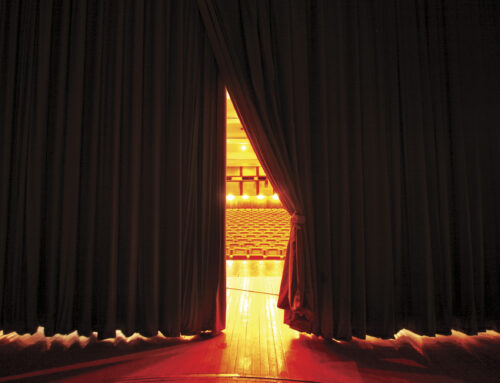Are you a talented singer or musician? Do you get a buzz from performing? Have you been singing or playing an instrument for some time? Perhaps you create your own music? You may have been inspired by the X Factor or The Voice, or by British successes – the likes of Stormzy, Lewis Capaldi and Adele.
In this article we look at the life of a recording artist, the entry routes and some great alternative careers.

What is involved?
As a solo artist or band member, recording artists perform at concerts, festivals and other gigs. Sometimes they tour in the UK or overseas. Once established, a recording artist will normally have an agent and staff to deal with bookings, tour arrangements and so on.
Recording artists also spend time in recording studios. Alongside an album release or tour will be media appearances, social media campaigns and photo shoots.
Apart from recording music and performing, recording artists also rehearse; they may have a coach to help with their playing or singing technique.
Songwriting or sourcing suitable material may also take up much of a recording artist’s time.
Do you have what it takes?
Apart from talent, hard work and a bit of luck, to be a recording artist, you need:
- a sound or image that makes you stand out from the crowd
- persistence and self-discipline
- stamina, especially for life on the road
- confidence – although some performers work hard to overcome their nerves
- resilience – to be able to take knocks along the way
- to be reliable
- the ability to market yourself, especially in the early stages of your career.
How to get experience
To hone your skills, expand your fan base, develop your network and improve your chances of being spotted, perform as much as you can. For example:
- perform at your school, college or university
- take part in talent competitions
- play in local pubs – some have open mic sessions
- get a licence from your local council and busk – Ed Sheeran famously started as a street performer
- perform at parties, charity events, local festivals…
- organise your own gigs.
How to become a recording artist
There’s no one route. For a few, success comes quickly, but most don’t make it overnight. Here are some tips on how to get going.
Put yourself out there – not only will performing give you experience, there’s a chance you’ll get spotted by an agent, record label exec or another influential person in the music industry.
Record some tracks – when you’re ready, book some studio time and record a professional demo. You can use this to promote yourself to record companies, agents, music reviewers etc. You can also sell your CD at gigs and send tracks to radio stations that are open to playing new acts.
Develop your online presence – get your music on social media and video-sharing sites. Increasingly talent is spotted online, especially if you build up a big fan base. BBC Music Introducing allows you to upload your tracks; you may have them played on local radio and get the opportunity to perform live.
Keep up to date with trends in the music industry and follow other artists – most musicians and singers take inspiration from others.
Consider a course in popular music – this will improve your skills and develop your network. Full- and part-time programmes are available up to postgraduate level. Before committing, find out about course content, the facilities available and how successful previous students have been. Higher education courses in popular music combine theory and practice; those at conservatoires focus on performance. Along with academic requirements, you need a high standard in your instrument/s or vocals. You can find out more by attending a UCAS Create Your Future exhibition. Specialist colleges include:
- Academy of Contemporary Music
- Access Creative College
- BIMM
- Institute of Contemporary Music Performance.
There’s no substitute for skill, so practice makes perfect. You may find that taking graded exams will motivate you to progress.
Related careers
If you don’t find stardom, you could perform as a backing singer or musician. Alternatively, you could consider a career that would make use of your interest in music in other ways. Many of these careers are competitive in their own right and for some you need specialist qualifications and experience. Creative Access offers paid internships in the creative industries (including music) for talented young people from minority ethnic backgrounds. Apprenticeships can provide an entry route for some careers.
Fortunately, the music business is thriving in the UK. You could, for instance, work in:
- songwriting – if you have the talent for this, try approaching music publishers or agents
- the record industry – there are opportunities in, for example, A&R (signing and supporting new talent), production, marketing, distribution or on the legal side
- music administration – e.g. working for a concert venue or for a particular band/artist – on the business side of the work, such as organising publicity or dealing with finances and bookings
- teaching – in a school, college or community group, as a peripatetic teacher (visiting various schools), or as a private teacher
- broadcasting – production or presentation – working on TV and radio, or with independent programme makers
- music journalism – writing for music magazines, websites or newspapers
- DJing – perhaps starting with community events, weddings and parties then progressing to the club scene
- roadying – doing everything to support a band or artist when on tour, from loading vans and driving to venues, to setting up equipment.
The Creative & Cultural Skills site has information on job roles in music and careers advice. You can also explore opportunities in music through the Creative Careers website.
Finally…
If you’re convinced you have what it takes to be a recording artist, the tips outlined above can help to make your dream become a reality. Although there are far more hopefuls than those who make it, there are great alternative careers in music to consider. And don’t forget that you can always keep performing part-time or as a hobby.
With a background working with apprentices and teaching in further education, Debbie was employed as an in-house careers author before establishing herself as a freelancer. As well as co-authoring numerous careers books, Debbie has produced resources and web content for a range of high-profile clients including Health Careers, the Royal Society of Chemistry and English Heritage.





